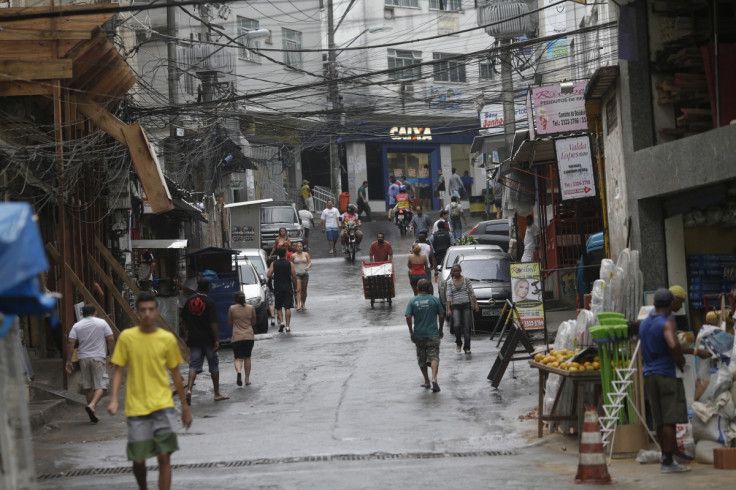Rio Favela Launches 'Ghetto TV', Giving Residents Their Own Voice

Angered at being represented as drug dealers, prostitutes and thieves, the denizens of a Brazilian favela have started the world's first "ghetto TV station".
Residents of Rio de Janeiro's largest shanty town, Rocinha, will produce, direct and act in prorammes broadcast on Evolution Television, which will stream its content through broadband to thousands of impoverished households.
"We are opening up a new way of speaking, a new way of being heard and a different way of accessing television for our communities," Joilson Pinheiro, the network's creator and channel president, told the Independent on Sunday.
"For decades we've been portrayed as domestics, labourers, thieves and illiterate nobodies who only have their lives reported on when there is an outbreak of violence, drug-related shootings, a tragedy or a protest."
According to Pinheiro, the station will depict "the humour, the drama, the difficulties we face and our aspirations".
Partnering with one of Brazil's newest cable operators, Sim TV, ETV will broadcast alongside channels showing World Cup coverage, news, and soap operas.
The plan is to pay the channel's 50 staff, who have been working 12-hour days on top of holding down full-time jobs, through channel sponsorship.
Locals have donated equipment and technical know-how, and pilot episodes for a number of shows are now ready for broadcast.
Valquiria Santana, ETV's executive director, is producing a daily magazine chat show with music. "What really matters is empowering our people, allowing them to get involved, giving them a chance to take charge of their own image and to tell their own stories," she said.
The channel's creators said they were spurred to action by the refusal of Brazil's main cable operators to install satellite dishes and receivers in shanty homes.
ETV aims to provide 35 favelas with a 30% cheaper TV deal, with funding from influential samba schools and local technicians to help install technology.
Though Rocinha has a better infrastructure than other favelas, with most homes having basic sanitation, plumbing and electricity it is still regarded by many as a dangerous area.
Residents believe they are often stereotyped as criminals in local media reports, with TV crews only setting up to report murders or protests.
Permanent police bases have been established in favelas throughout the city in the run to this summer's World Cup and next year's Olympic Games, bringing relative stability after years of criminal violence.
"People in Rocinha are excited about the arrival of ETV. We still have a degree of unpredictable violence here but we no longer have drug gangs dictating how we operate and demanding a cut of our profits," said Luciano Viana, a local internet installation technician who is responsible for helping to roll out the channel.
© Copyright IBTimes 2024. All rights reserved.























